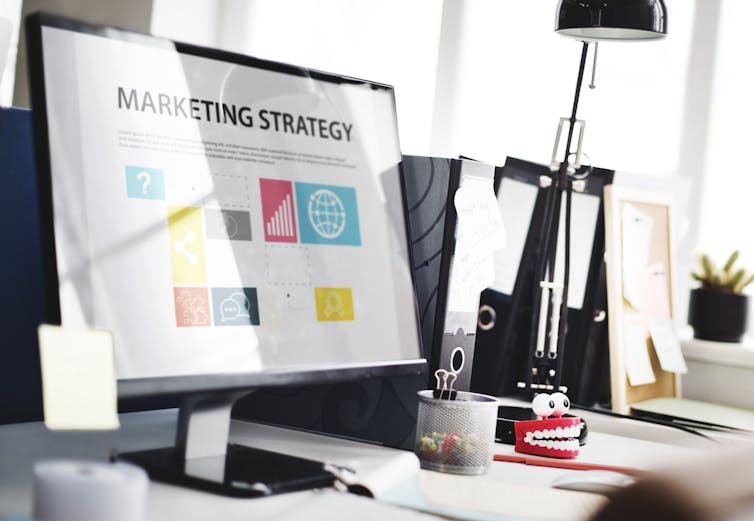Out with the old: Marketers are reinventing themselves for a more sustainable future
With an overwhelming 96 per cent of U.S. consumers actively seeking ways to protect the planet, marketers are no longer expected to simply sell products. They are now expected to influence consumer behaviour to advance sustainability goals.
Because of their unique skill sets, marketing professionals are ideally positioned to do this. But as they have begun to embrace this responsibility, they have found themselves caught between traditional marketing practices focused on profit, planned obsolescence and overconsumption, and newer approaches centred on sustainability and social impact.
As a result of these conflicting interests, marketers are experiencing a professional identity crisis. To delve deeper into this issue, we have been conducting interviews with marketing professionals as part of an ongoing research study.
Our findings reveal that, in order for marketers to meet the call for brands to be more sustainable, they need to reinvent themselves and their role.
Something is better than nothing
Many organizations are struggling to make significant strides in their sustainability efforts, often falling short of or failing to live up to their promises.
The marketers we interviewed often found themselves in ethical dilemmas, grappling with a clash between traditional profit-driven marketing methods and newer, sustainability-focused approaches.
Many felt a sense of guilt and frustration, questioning whether they were truly making the right decisions. One marketer said: “Am I really doing enough? Am I taking the easiest route, or is this actually a good decision?”


Despite the ethical challenges, some marketers saw this morally ambiguous territory as transformative — a chance for a kind of rebirth. It allowed them to embrace the idea of choosing the next best option when the ideal was unattainable.
One marketer said this approach was less about whether a decision or action was good or bad from a sustainability perspective, and more about whether it was something they could personally “live with.”
Even if consumers did not radically change their behaviour, small, genuine successes were viewed as valuable. The key was not letting the pursuit of perfection get in the way of recognizing that small, incremental changes add up over time —a sentiment one participant said was “a good step forward.”
Breaking up and breaking out
Unsurprisingly, some marketers felt the old marketing practices — especially the ones that emphasized over-consumption from consumers — violated their personal values. When these practices became too incongruent with their new desired professional self, and the progress toward sustainability felt too slow, some parted ways with their employers.
One marketer, for instance, left to start their own business after feeling powerless to implement more sustainable practices. “I just knew there had to be a better way,” they said. Others left high-profile jobs with well-known multinational brands in an attempt to break free and reinvent themselves professionally.
While leaving the job was a noticeable trend, not everyone was able to do so due to financial or personal constraints. Those who remained in their roles sought alternative ways to make positive impacts. Some took leaves of absence to volunteer for social causes, while others embarked on sustainability-related educational programs.


Those that were unable to leave their positions looked for ways to find greater meaning in their work by taking on sustainability-related projects in their spare time. Tapping into peer support through professional sustainability related communities, like Sustainable Brands, became a vital lifeline.
As one marketer said: “Seeing what everyone is doing, being a part of others making change is very inspiring.” By joining like-minded communities outside their respective organizations, these marketers were able to recharge, get support and find allies in pursuit of new professional identities.
Regardless of whether participants moved on from their positions or found fulfilment on the side, one thing was clear: marketers felt there was a need to break up with the old to embrace new relationships and ways of doing.
A seat at the table
While there was a clear propensity among the marketers in our study to leave jobs or opportunities that were no longer beneficial, they often viewed complex or controversial situations as creative opportunities.
Their optimism was rooted in what respondents called having “a seat at the table.” There was widespread agreement that having a seat at the corporate table allowed them to drive and influence change. The personal agency derived from actively contributing to solutions, even during tough times or when dealing with ethically challenging situations, was meaningful in and of itself.
As one young marketer said: “It is my job to figure out how to do good in the world.” A senior marketer shared a similar sense of personal agency and hope: “We can combine our professional aspirations with something that we also believe in.” Another senior marketer added that “using my powers for good instead of evil, being part of the solution, feels good.”
Despite feelings like not enough was being done in the short term, the marketers remained optimistic about the role of sustainability — even in the most ethically complex industries such as oil and gas, tobacco and gaming. As one respondent said, “in the long run, [your actions] will bring you positive change.”
Even while facing monumental challenges, the marketers in our study exhibited grit and determination as they worked to carve out a place in the business world dedicated to those committed to doing good.
The Conversation



